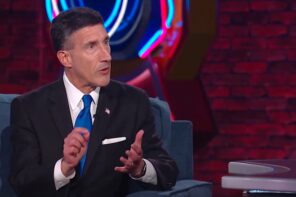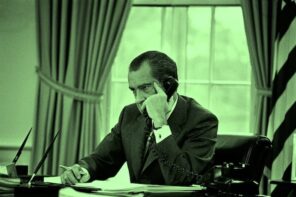The U.S. Conference of Catholic Bishops, in their ever-shifting rationale for opposing the contraceptive coverage requirement, now claim “forcing plans to cover abortifacients violates existing federal conscience laws. Therefore, we called for the rescission of the mandate altogether.”
Various religious right and anti-choice groups are making the same argument. A group of religious right groups has filed an amicus brief in the case before the Supreme Court, challenging the constitutionality of the individual mandate in the Affordable Care Act, to add the argument that “the recent regulatory decision by HHS to force virtually all employers to provide insurance coverage for contraceptives, sterilizations, and abortion-inducing drugs will force many religious individuals and organizations into a choice to either violate their religion or pay exorbitant penalties that could put them out of business.” (emphasis added). This argument echoes that made in the cases brought by Belmont Abbey College, Colorado Christian College, and the Eternal Word Network against the Department of Health and Human Services over the new contraception coverage rule.
The claim that the contraceptive coverage rule includes abortifacients is simply not true. Ella and Plan B, which are covered along with other contraception, are taken after unprotected sex to prevent an unintended pregnancy from occurring. They are not abortifacients. The FDA does not classify them abortifacients. Here’s how the Mayo Clinic explains the difference (emphasis added):
Keep in mind that the morning-after pill isn’t the same as mifepristone (Mifeprex), also known as RU-486 or the abortion pill. The morning-after pill can prevent pregnancy. If you’re already pregnant when you take the morning-after pill, the treatment will be ineffective and won’t harm the developing baby. The abortion pill terminates an established pregnancy — one in which the fertilized egg has attached to the uterine wall and has already begun to develop.
If the FDA started using the Bishops’ pseudo-science to classify drugs, that would be . . . . well, exactly what the Bishops want: the law to be based on their religious beliefs. And that would be an unconstitutional infringement of everyone else’s rights.












